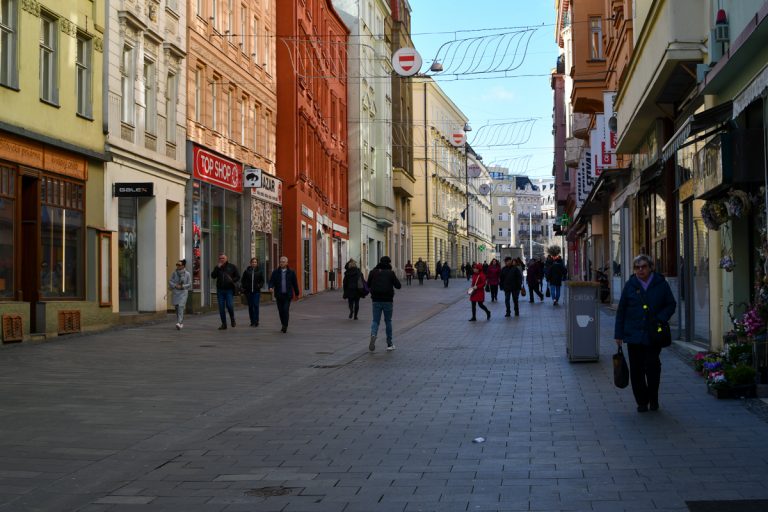The Czech Republic has improved slightly in the 2023 Transparency International (TI) Corruption Perceptions Index published yesterday, which assesses the perception of corruption in 180 countries and regions. The Czech Republic scored 57 out of a possible 100 points in the 2023 ranking, up from 56 a year earlier.
The Czech Republic ranked 41st of the 180 countries assessed. Compared to the previous year, it improved by one point and remained in the same position in the ranking. TI was critical of developments in Slovakia and Hungary, both of which have shortcomings in the rule of law, according to the TI report. Denmark topped the index, as it did last year.
In terms of fairness, Denmark (90 points), Finland (87 points) and New Zealand (85 points) have performed best, as usual, with Syria (13 points), Venezuela (13 points) and Somalia (11 points) at the other end. Transparency International pointed out that some of the traditional frontrunners such as Sweden (82 points), the Netherlands (79 points), Iceland (72 points) and the UK (71 points) had their worst scores to date. The drop is most pronounced for Britain, which has lost six points in the last five years.
The Western Europe and European Union region, of which the Czech Republic is a part, remains the highest scoring region globally, with an average of 65 out of 100 points. The worst scorers in the region were Romania (46 points), Bulgaria (45 points) and Hungary (42 points).
In Hungary, where Viktor Orban has ruled as prime minister since 2010, a system in which corruption has flourished with impunity has been taking shape for more than a decade, according to TI, who noted that the Orban government has no intention of adjusting its course.
Slovakia also faces criticism in the report. The progress made so far in prosecuting corruption in Slovakia has been undermined by the government’s controversial dismissals in the judicial sphere. This was quickly followed by legislative measures to abolish the office of the special prosecutor for the fight against corruption and to reduce penalties for corruption. TI warned that if Slovakia actually adopts these measures, it will significantly undermine the rule of law and democratic stability.
TI’s criticism was directed, as it was last year, at Sweden, which has lost seven points since 2015 due to issues related to judicial independence. Only Guatemala and Turkey, which dropped by nine and 11 points respectively, registered a bigger drop.
TI welcomes developments in Ukraine, which has improved by three points year-on-year to 36, despite facing two years of Russian military invasion. TI ranked Ukraine as one of the biggest risers, having managed to improve its score by ten points since 2014 thanks to a series of reforms. Russia, on the other hand, dropped two points year-on-year to 26.
TI’s main report does not go into detail on the Czech Republic, nor does it mention the country in the section on Western Europe and the European Union. In its own report yesterday morning, TI Czech Republic (TI CR) said the country continues to lag seven points behind the EU average. “The cause, as in previous years, is the long-term absence of strategic and programmatic solutions to curb corruption, both from government officials and the current opposition,” wrote TI CR.
Despite repeated promises in election campaigns, politicians have neither the will nor the desire to actively address this issue, TI CR’s report continued. The organisation argues that the Czech Republic is adopting anti-corruption legislation late and only after emergencies or lawsuits from the European Commission. Important partial amendments are either not being completed or are cosmetic changes without a comprehensive and effective impact, they said.
“The Czech Republic’s position in the new Corruption Perception Index results confirms the long-term stagnation and unwillingness of the political representation to systematically address and consistently combat corruption. We are still far below the EU average (64 points) and the Baltic states, especially Estonia (76 points), are starting to ‘run away’ from us,” said Jan Spacil, chairman of the board of TI CR.
TI CR noted that last August the whistleblower protection law came into force, which it described as the biggest anti-corruption legislative achievement of the current coalition government of Petr Fiala (ODS).
However, TI CR added that the government does not deserve praise for this, as the adoption of the law was preceded by a complicated, years-long debate, and moreover, the law only partially protects whistleblowers, and does not apply to anonymous submissions.
The Czech Republic has also not yet satisfactorily resolved conflicts of interest in relation to public procurement, according to TI CR, despite last year’s amendment to the conflict of interest law, which addresses the control of the media by politicians and the acceptance of subsidies by members of the government.
“It is still the case that anti-corruption laws in the Czech Republic are addressed only after external pressure from the EU in relation to European subsidies and regulations or directives. Their adoption is preceded by a decade of ideologically tinged debates, often without taking into account data or experience on the ground, followed by political stalling. What has often been the norm in the EU and Western Europe for years is still being questioned in the Czech Republic,” said TI CR.
Czech politicians are particularly reluctant to address the legal norms of their own behaviour and the rise of political culture, the report concluded.
However, the Czech Justice Ministry noted that the Czech Republic was ranked highest among the Visegrad Group countries. The ministry added that last year was a breakthrough in the fight against corruption, and the positive effects of new legislative measures have not yet been reflected in the TI ranking and can be expected in the coming years.








